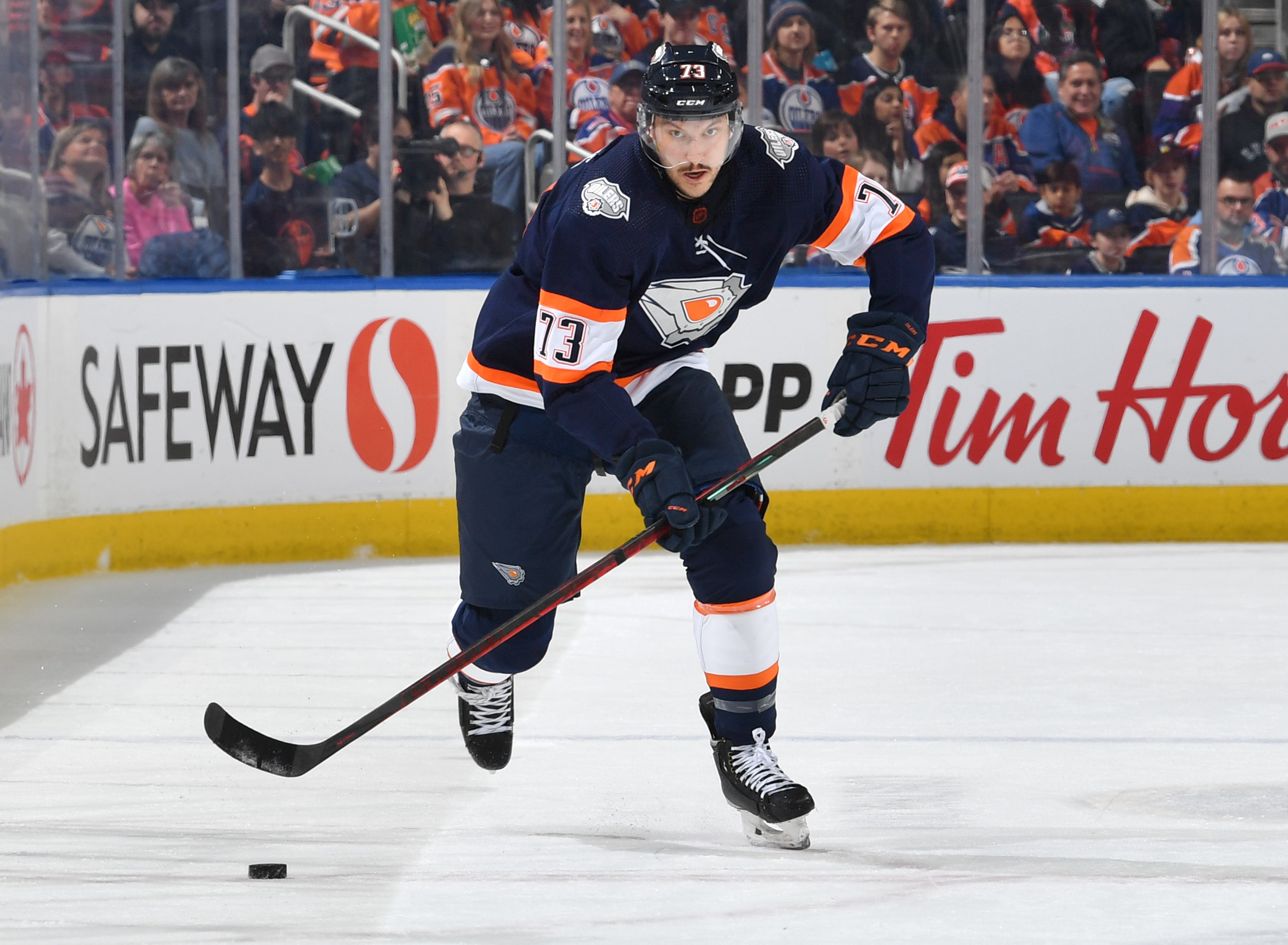The Edmonton Oilers had a chance to acquire forward Sam Lafferty in a trade with the Toronto Maple Leafs this week. Lafferty, a potentially impactful bottom-six forward who can play in the middle-six role would have been a nice add. The salary was right, the contract was short, and the need was there.
Ultimately, Lafferty went to Vancouver. It wasn’t until Tuesday that fans were informed it was the Oilers who ultimately walked away from a trade, electing instead to stick with their own guy, the player they knew, and someone they had spent time developing in Vincent Desharnais.
Essentially, the Oilers chose depth on defense instead of depth at forward. As nice a fit as Lafferty could have been, it was the right choice for multiple reasons.
** Author’s Note: This piece was originally almost complete when an update from Elliotte Friedman was published on Tuesday night. Originally, the tone of the article was written as though the Oilers and GM Ken Holland had been the instigators of a trade for Lafferty and I was heavily in support of that idea. The new perspective on the rejected deal and the ask changed the tone of the article significantly.
Toronto Wanted What The Oilers Weren’t Keen to Give Up
The Oilers would have liked to add depth at forward. Their top six is stacked, and their bottom five (likely playing with 11 forwards) is a bit less so. The team could have used someone with energy to spare, a splash of skill, and some stability. Lafferty offered the style of game that would have fit well, potting in a goal from time to time. He would have brought extra physicality and speed to the forward group to go with an already-loaded forward core that possesses a ton of skill. Frankly, he was the ideal target and the Oilers may continue to seek out this type of player.

Meanwhile, the Maple Leafs needed a towering defenseman to add a little grit to an otherwise non-physical blue line. With a puck-moving defensive core that doesn’t have a lot of bite, the Leafs have been looking around the market for a different mix. Treliving identified this as a hole on the roster the moment he took over as general manager. He’s yet to address this and will likely continue to try.
Related: Oilers Well Set Up to Make Massive In-Season Trade
The question the Oilers had to ask themselves was if Lafferty was currently more important to their roster than Desharnais. In the end, they deemed the answer was no.
Maple Leafs Were Trying to Win a Deal They Had to Make
According to insights shared by Friedman, the Maple Leafs were eager to send Lafferty to Edmonton and hoped Ken Holland’s previous interest in the player would have been enough to convince the Oilers’ GM to part with Desharnais. The Leafs’ objective was clear: freeing up essential cap space and acquiring a physically imposing defenseman, a void they felt was crucial to fill.
Lafferty had become a movable piece in Toronto’s puzzle due to the team’s shifting dynamics. Fraser Minten had made the team, William Nylander was moving back to the wing, and the team was about to sign Noah Gregor: Lafferty wasn’t needed. It was Toronto who reached out to the Oilers hoping to make a deal. That they essentially dumped Lafferty when Holland declined shows how eager they were to get the trade done.
The Oilers Need the Depth On Defense
Desharnais has earned the respect and trust of the coaching staff through his performances, even if inconsistent at times. Still growing as a player, the Oilers have used him in high-pressure situations, as seen during last year’s playoffs. So far this year, he’s already played a factor in games during the pre-season.
More than that, the Oilers are dealing with injuries on their blue line. Mattias Ekholm and Brett Kulak may ultimately play opening night, but it’s not a guarantee and it goes to show how important it is to have extra defensemen. Already playing the game short a full roster, Desharnais becomes a critical piece if injury issues continue. If he continues to grow, he becomes infinitely more valuable and there are few players in the league like him.
So too, Desharnais’ lower cap hit offers the Oilers more flexibility to make other moves — and this season is when it counts. Swapping salaries here would have only complicated the Oilers’ cap situation.
There is a potential silver lining in all of this. If the Canucks are out of it by the NHL Trade Deadline, who’s to say Holland doesn’t revisit the idea of Lafferty at the trade deadline, potentially getting him at a reduced rate?
